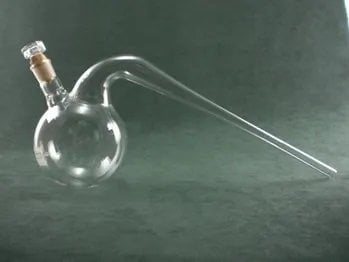'Undrinkable' tap water leaves millions of Aussies frustrated–here's what’s really going on
By
Maan
- Replies 23
A recent issue with tap water across several regions in Queensland has left residents scratching their heads and scrambling for answers.
What many thought was a temporary inconvenience has turned into a much larger problem, causing widespread frustration.
As the situation continues to unfold, local authorities are working to address the growing concerns, but the real cause of this disturbance might not be what you expect.
Millions of residents in Queensland, including those from Brisbane, Ipswich, and Logan, were left frustrated and confused after their tap water became ‘undrinkable’ last week.
Complaints poured in about the odd taste, smell, and colour of the water.
Seqwater, the South East Queensland Water authority, issued a statement clarifying that naturally occurring compounds known as Methylisoborneol (MIB) were the culprits behind the issue.
The compound, which was detected at the Mount Crosby Water Treatment Plant, had formed due to a combination of heavy rainfall and high temperatures.
‘Customers should begin to notice the taste and odour of their tap water beginning to return to normal over the coming days,’ Seqwater assured residents.
They confirmed that while MIB could cause an earthy or grassy taste, the water remained safe to drink.
The compound was filtered out during treatment, but occasionally, it could affect the water’s taste temporarily.
Amid concerns about water quality, local councils raced to find solutions to meet demand. The Logan desalination plant increased its output to full capacity in response to rising complaints from residents.
Logan mayor John Raven mentioned that adjustments to water production had been made, including a reduction in output from Mount Crosby, aimed at diluting the taste.
‘In response to concerns raised by residents all over the region, they (South East Queensland Water) have now increased the desalination plant output to full, and have lowered production from the Mt Crosby Water Treatment plant to dilute the water,’ he said.
Despite these efforts, some residents were not convinced. Many took to social media to share their dissatisfaction, with some even opting for bottled water.
‘Don’t care what you say, Seqwater, doesn’t seem safe to drink if my nose and taste buds are telling me otherwise,’ one person wrote.
‘It tastes and smells terrible, undrinkable,’ another added.
Seqwater also assured the public that efforts were ongoing to move large quantities of water into the South East Queensland grid.
This would help improve both the flow and taste of the water.
‘We have also increased monitoring of the water catchment and throughout the treatment processes,’ they explained.
While the water tasted unpleasant to some, Seqwater reiterated that MIB does not pose a risk to public health.
The compound is naturally produced by blue-green algae in dams and weirs, or by bacteria in water and soil. Once treated, the water is safe to consume.
For residents sensitive to the taste, Seqwater recommended cooling the water, which could help reduce the earthy flavour.
‘The water will return to its usual taste, potentially over the coming days, pending weather conditions,’ the notice concluded.

Have you noticed a change in your tap water, or are you sticking to bottled? Share your thoughts with us in the comments below.
What many thought was a temporary inconvenience has turned into a much larger problem, causing widespread frustration.
As the situation continues to unfold, local authorities are working to address the growing concerns, but the real cause of this disturbance might not be what you expect.
Millions of residents in Queensland, including those from Brisbane, Ipswich, and Logan, were left frustrated and confused after their tap water became ‘undrinkable’ last week.
Complaints poured in about the odd taste, smell, and colour of the water.
Seqwater, the South East Queensland Water authority, issued a statement clarifying that naturally occurring compounds known as Methylisoborneol (MIB) were the culprits behind the issue.
The compound, which was detected at the Mount Crosby Water Treatment Plant, had formed due to a combination of heavy rainfall and high temperatures.
‘Customers should begin to notice the taste and odour of their tap water beginning to return to normal over the coming days,’ Seqwater assured residents.
They confirmed that while MIB could cause an earthy or grassy taste, the water remained safe to drink.
The compound was filtered out during treatment, but occasionally, it could affect the water’s taste temporarily.
Amid concerns about water quality, local councils raced to find solutions to meet demand. The Logan desalination plant increased its output to full capacity in response to rising complaints from residents.
Logan mayor John Raven mentioned that adjustments to water production had been made, including a reduction in output from Mount Crosby, aimed at diluting the taste.
‘In response to concerns raised by residents all over the region, they (South East Queensland Water) have now increased the desalination plant output to full, and have lowered production from the Mt Crosby Water Treatment plant to dilute the water,’ he said.
Despite these efforts, some residents were not convinced. Many took to social media to share their dissatisfaction, with some even opting for bottled water.
‘Don’t care what you say, Seqwater, doesn’t seem safe to drink if my nose and taste buds are telling me otherwise,’ one person wrote.
‘It tastes and smells terrible, undrinkable,’ another added.
Seqwater also assured the public that efforts were ongoing to move large quantities of water into the South East Queensland grid.
This would help improve both the flow and taste of the water.
‘We have also increased monitoring of the water catchment and throughout the treatment processes,’ they explained.
While the water tasted unpleasant to some, Seqwater reiterated that MIB does not pose a risk to public health.
The compound is naturally produced by blue-green algae in dams and weirs, or by bacteria in water and soil. Once treated, the water is safe to consume.
For residents sensitive to the taste, Seqwater recommended cooling the water, which could help reduce the earthy flavour.
‘The water will return to its usual taste, potentially over the coming days, pending weather conditions,’ the notice concluded.
Key Takeaways
- Millions of Queensland residents, including those in Brisbane, Ipswich, and Logan, complained about the taste, smell, and colour of their tap water.
- The issue was linked to naturally occurring compounds called Methylisoborneol (MIB), which formed due to heavy rainfall and hot weather conditions.
- Local councils, including Logan, increased desalination plant output to address the problem, with Seqwater assuring the public that the water remained safe to drink.
- While the water may taste unpleasant, the compound is harmless, and authorities continue to work on restoring normal water quality.
Have you noticed a change in your tap water, or are you sticking to bottled? Share your thoughts with us in the comments below.









